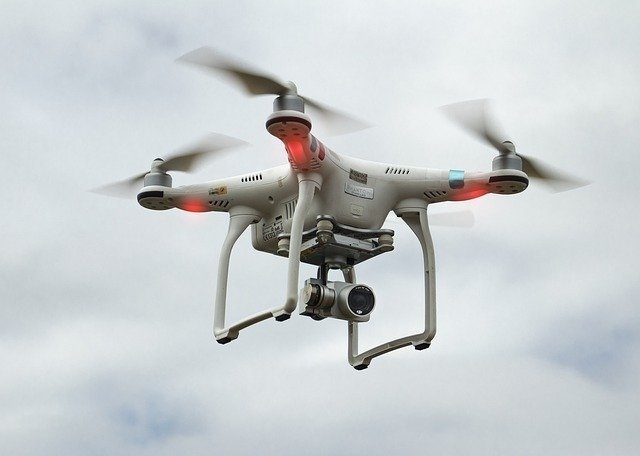South Jersey residents interested in obtaining a degree or certification in drones can now take classes at Atlantic Cape Community College’s Cape May County campus.
This fall, Atlantic Cape Community College began the process of moving all of its Unmanned Aircraft System classes to its Cape May County campus by Spring 2023.
“Atlantic Cape’s drone program is moving to Cape May County Campus to educate and train the workforce along with fostering entrepreneurial opportunities for our students and the community,” said Cape May Campus Dean Maria Kellett. “These collaborative efforts will support the growth and development of unmanned aviation, emerging businesses, and technology companies that utilize drones and UAS.”
Atlantic Cape is recognized as one of the leading institutions in the state for drone education. There are only a handful of community colleges or universities in New Jersey to offer courses at the level of Atlantic Cape’s UAS Program, which was one of the first in the country. The college is also part of the FAA’s nationwide collegiate training initiative with about 38 other drone programs.
“What really gives our students an advantage is our heavy hands-on practice, field work and applications — actually using this technology. Among the other programs, it was only a small minority of them to have this implemented,” said UAS Professor James Taggert.
The classes moved this fall offer students an introduction to drones and help them obtain a Remote Pilot Certificate from the FAA, which demonstrates that they understand the regulations, operating requirements, and procedures for safely flying drones.
Not only do Atlantic Cape’s drone professionals recognize the importance of actual flying experience, but they also believe in the future; drone maintenance professionals will be in high demand. The UAS courses offer students the opportunity to learn repair work of equipment with electrical circuitry, among other important systems drone technology utilizes.
Drone usage has continued to grow rapidly in multiple industries and as drones become heavily utilized, the demand for service and aircraft operators becomes even more preeminent.
“It’s only going to get bigger. This is a technology that’s going to outlive everyone on the planet. It’s not going anywhere,” said Taggert.
Atlantic Cape expanded its Aviation Program to include drones in July 2019 and Cape May County officials have also been preparing for the blossoming industry for more than half a decade.
“Everyone knows that tourism and hospitality are the lifeblood of the Cape May County economy,” Cape May County Economic Director Joe Molineaux said. “Cape May County government recognizes the need to diversify the county’s economic landscape and create new opportunities for its residents. Identifying industries that will bring more year-round, well-paying jobs to the region is at the heart of the county’s economic development efforts.”
A group of buildings, known as Tech Hangars, at the Cape May County Airport were built to attract technology businesses to the area. Businesses that work with drones are among the planned mix of tenants as additional Tech Hangars are constructed.
At least two additional classes will move to Atlantic Cape’s Cape May County campus at the start of each semester.








